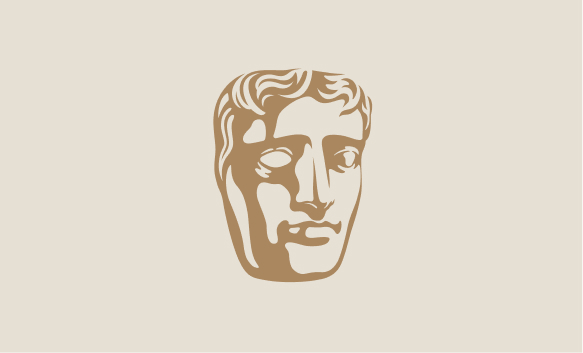Krishnendu Majumdar: Good evening and welcome to the BAFTA Television Awards with P&O Cruises.
I’m thrilled to be back at the Royal Festival Hall and to welcome our wonderful new hosts, Rob Beckett and Romesh Ranganathan.
Two weeks ago we celebrated the very best behind-the-scenes talent at the Television Craft Awards. Tonight we’ll continue that joyous celebration of everything that is brilliant about television, and the dedicated and immensely talented people that make it.
It’s about shining a light on the stories that resonated with audiences in 2022; stories that moved them, made them think differently or made them laugh. Stories that matter.
This year’s nominations are a true testament to the enduring power of television to bring people together at times of national celebration and of national mourning.
Television holds a very special place in British culture. And Public Service Broadcasting is a fundamental part of that.
The industry has shown there’s a place for Public Service Broadcasters and pay-tv, free-to-air, and streamers to co-exist, creating exceptional content and providing an abundance of choice and stories for British audiences. That, in itself, is something to celebrate.
Tonight is my last awards as Chair of BAFTA. My three-year term comes to an end next month.
It’s been the greatest honour of my career to serve and lead the Academy.
I got involved with BAFTA 18 years ago because there is no other charitable organisation in the world that brings together 10,000 creative minds across film, games and television to champion great work, and to inspire and nurture the next generation of talent.
I’m so proud of the journey we’ve been on and the seismic changes BAFTA has made over the last three years. That work continues because progression on making this industry more representative, inclusive, and equitable is a collective responsibility. It’s on all of us.
Awards are a mirror to the industry. They offer a snapshot of a moment in time. They reward excellence and celebrate success. And they also tell us a lot about the current picture of the UK television sector.
So let’s redouble our efforts. Let’s look again at how we are supporting people from all backgrounds – not just to enter the industry but to stay in the industry and thrive in sustainable careers.
We have a critical skills shortage in the TV industry and a cost-of-living crisis. This is not just a moral and creative imperative, it’s an economic no brainer.
And we’re also facing a global climate crisis. The Climate Content Pledge, convened by BAFTA albert and signed by all major broadcasters at COP 26 was a landmark commitment – but must only be the start.
To quote Sir David Attenborough: “We are at a unique stage in our history. Never before have we had such an awareness of what we are doing to the planet, and never before have we had the power to do something about that. The future of humanity and indeed, all life on earth, now depends on us.” No pressure then!
Coupled with this is the other enormous challenge we face in the digital age – the rise of disinformation. Now, more than ever, audiences are relying on trusted news and current affairs output to cut through the noise by producing journalism that’s committed to accuracy and the truth. It’s not only a pillar of our democracy – when it comes to tackling climate change, television plays a vital role because we are storytellers. And we can engage the public like no other medium, not only in the problems, but the solutions too.
I say all this because we all want to leave the industry, and our planet, in a better place and with more hope than where we found it.
And I’ve never doubted that a small group of thoughtful and committed citizens can change the world. Do you know why? It’s the only thing that ever has. In the room tonight, we have a number of trailblazers who have not only made game-changing television, but have worked for a better, more progressive and more representative industry.
I’m delighted to say that Meera Syal is being presented the Fellowship – BAFTA’s highest honour.
Meera – you are a national treasure, beloved by your peers and the public. Over four decades and counting you have brought your distinctive voice, humour and exceptional storytelling to the UK’s creative arts. Amongst an outstanding body of work, one jumps out – Goodness Gracious Me – it changed the game. And you have paved the way for so many others. Seeing is believing. I simply wouldn’t be standing here if it wasn’t for you.
Also tonight, we are recognising the work of Professor David Olusoga with a BAFTA Special Award. Another shining example of someone who has made an outstanding contribution, not just to the television community but to our society and national culture.
David, your commitment and bravery to reappraising how histories have traditionally been told through broadcasting is inspirational. You represent the very best of what television can do. Its power to inspire, educate and challenge. Your Special Award couldn’t be more deserved.
I’ll close by saying a special thanks to our new headline sponsor P&O Cruises. As an arts charity, BAFTA wouldn’t be able to deliver its year-round programmes and awards without the generous support of our partners and funders. Thanks also to Charlotte Moore and the BBC, Spungold TV, Sara Putt and the BAFTA TV Committee and the brilliant BAFTA staff led by Jane Millichip. And to our President, his Royal Highness the Prince of Wales, who supports us in everything we do.
Good luck to all the nominees – you have made your magic now – thank you for inspiring us with your stories. Have a wonderful evening and I’ll see you on the other side.













